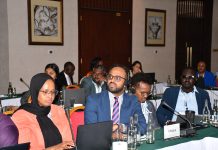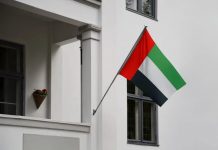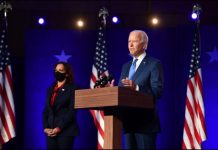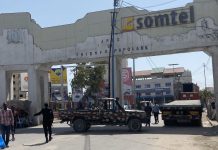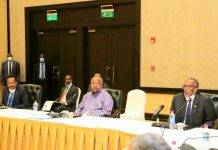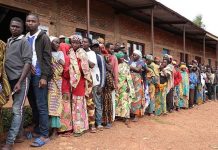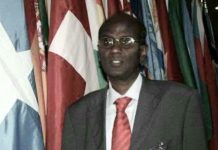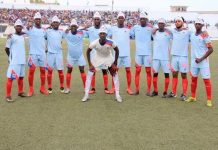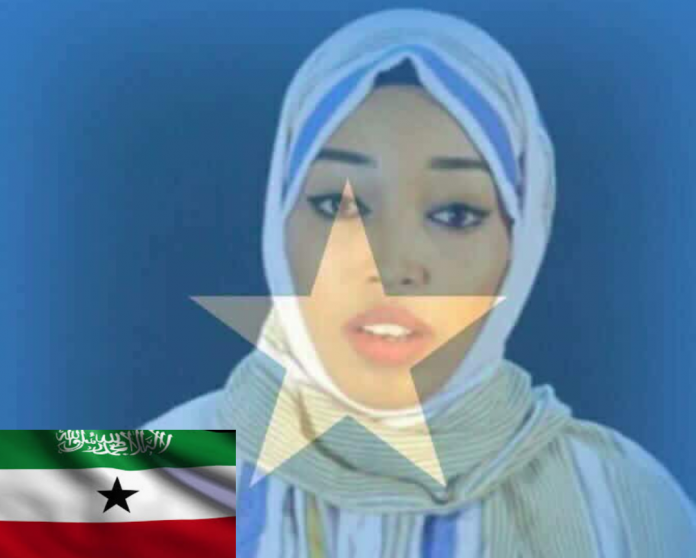To understand the Somalia /Somaliland saga and the underlining context that leads to young activists being arrested for their political views in Somaliland, one needs to understand the context of the Somalia’s civil war and the consequence of lack of real reconciliation on the ground. Whenever I see young people being arrested for their political beliefs for showing aspiration for Greater Somalia, I cannot help but to feel sorry for them. They are suffering from lack of leadership from Somalia’s/ Somaliland’s leaders and the consequence of delayed conflict resolution on both sides. If the recent saga involving Galbidhagax transfer to Ethiopia and ONLF is anything to go by, one has to conclude Somalia’s leaders are not sincere or serious about Greater Somalia. They are sincere about South Somalia-centric politics. On the other hand, Somaliland leaders and politicians are suffering from delayed conflict resolution – anything that smells of Greater Somalia is seen from the prism of the civil war and the need to run away from Greater Somalia effect. Call it a double delusional effect. This unfortunate set of circumstances leaves young activist vulnerable, finding themselves a rock and hard place, open to abuse and prison.
South Somalia’s politicians seem to believe with (naivety) that forgetting about the consequence of civil war and (get on with it attitude) will solve anything or bring Greater Somalia back – and Somaliland politicians believe South Somalia’s politics has not changed and cannot be trusted to offer anything substantial to Somaliland. This delayed conflict resolution syndrome has created a dangerous impasse, which will affect many issues relating to border disputes, air aviation industry, Somalia’s international debt, and mineral resources. This is the consequence of a failed state and societies that has running of ideas for conflict reconciliation and resolution. It is therefore not surprising to have young people vulnerable to abuse and prison for their political beliefs – because on the final analysis, Somaliland is on the edge on anything that smells of Greater Somalia and Somalia’s politicians are too consumed by South Somalia-centric politics to care for Greater Somalia.
This false prospectus and lack of imaginative leadership on both sides creates a space for delusional politics that affects everyday people. Somalia and Somaliland politicians seem think wearing a good suits and wearing titles while others clap for them will solve this delayed conflict – It is a recipe for social disorder and further conflict as we are already witnessing the fighting in Tuuraq between Puntland and Somalilland forces. These skirmishes and illegal arrest of young activist for their political views are a testimony to the delayed reconciliation that exists across all the Somalia’s regions.
Across all the Somalia’s regions, we are all dealing with the consequence of the civil war. We have a broken country and society that is psychologically, economically and structurally scarred – we are dealing with a country that is being managed economically with roughly the annual budget of Manchester United Football Club (500 million pounds sterling).
The task of bringing this country and society together or finding amicable political settlement will require more than good suits and political titles – it requires a political imagination and commitment of the highest order. On the evidence I have observed, I am not convinced our collective politicians have that imagination: they are consumed by their own titles and the politics of poverty.
As someone who was born in Somaliland and is an ardent believer of Greater Somalia, I myself receive social media abuse whenever I express my political views in my writings. This level of abuse and reaction is by product of the psychological disturbance /effect of civil war and distrust that exists people across Somalia. When I observe these dynamics, I am minded to believe the recent report/study by the UN which has preliminary concluded – large percentage of the Somali population exhibit some degree of psychological disorder. For me, this is no laughing matter. This report is currently with the Somali Government Ministry of Health and I would encourage anyone to read it before passing any defensive judgement Report.
Our combined politics is too consumed by nation building but our politicians have forgotten to rebuild our polity and societies from the psychological scars, mutual suspicions, misunderstanding and lack of political purpose for our existence and our place in the world. – and by extension our politicians are not exempt from these conditions. At present, we are currently suffering from the politics of rhetoric and conferences (xaflad) syndrome. Hardly, a recipe for imaginative and progressive politics.
In summary, I would to urge the Somaliland government to immediately release Naciimca Qorane . Failure to do so will further show the political bankruptcy that exists in Somaliland. They just need to listen to the powerful words of Naciima’s ‘father below to see how farcical this arrest looks from the outside.
Sometimes they forget the dictatorship of Mohamed Said Barre arrested their compatriots based on their political beliefs. I thought Somaliland’s pursuit for independence meant a new chapter. I wonder whether all Somalia/Somaliland Governments and the people are the same, vulnerable to misrule and mistreatment because we misunderstood the meaning and purpose of Government. By the same token, South Somalia leaders and politicians must show political imagination beyond South Somalia, great suits and political rhetoric on this critical issue facing across Somalia. This is most critical (now) because young people and the innocent are suffering from this political bankruptcy that exists on both sides.
My recommendation is that since Somalia is legally under the trusteeship of the United Nations for Political Development, Food Security, Security and Economic Assistance, Security Council Resolution 2346 (2017), the International Community should take urgent steps to encourage and facilitate real reconciliations on the ground across Somalia/Somaliland. I believe our current Somali politicians on all sides do not have the faculty and imagination to come up with a comprehensive framework for reconciliations. They are consumed by their narrow thinking and politics of poverty. Failure to do so will result in further conflicts and misrule on both sides with catastrophic consequence for Somalia’s collective recovery. In conclusion, my fear is that further delayed reconciliation for Somalia/Somaliland will eventually end in a delayed conflict.
Mohamed Ibrahim BA/MSc from London School of Economics and Political Science, a London based, UK, Social Activist/ keen Author – he can be reached via:
Email: Mohamedlsyf@gmail.com
@Mi_shiine (Twitter)
Disclaimer: The views and opinions expressed in this article are those of the author and do not necessarily reflect whatsoever the official policy or position of Ummadda Media.


